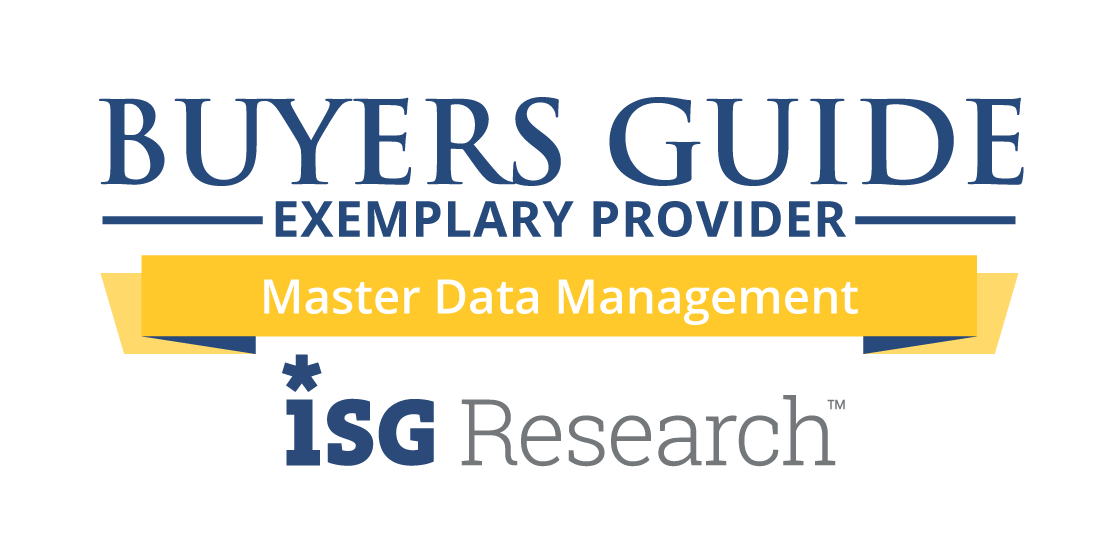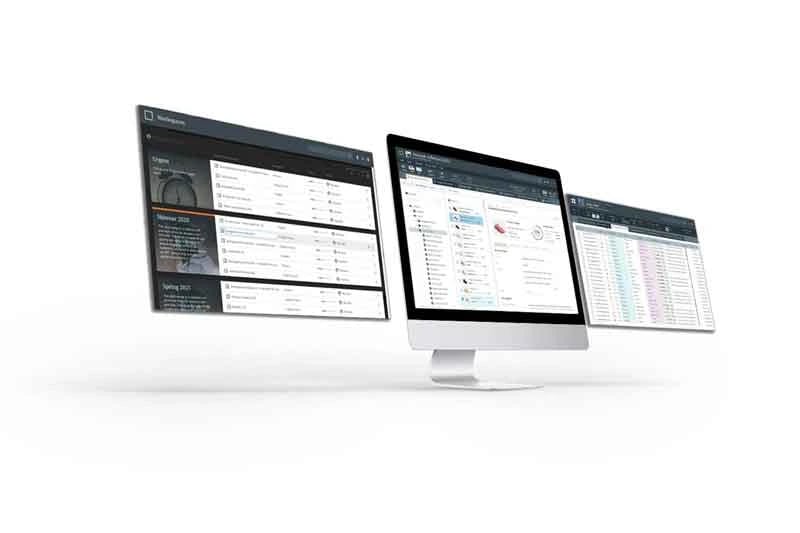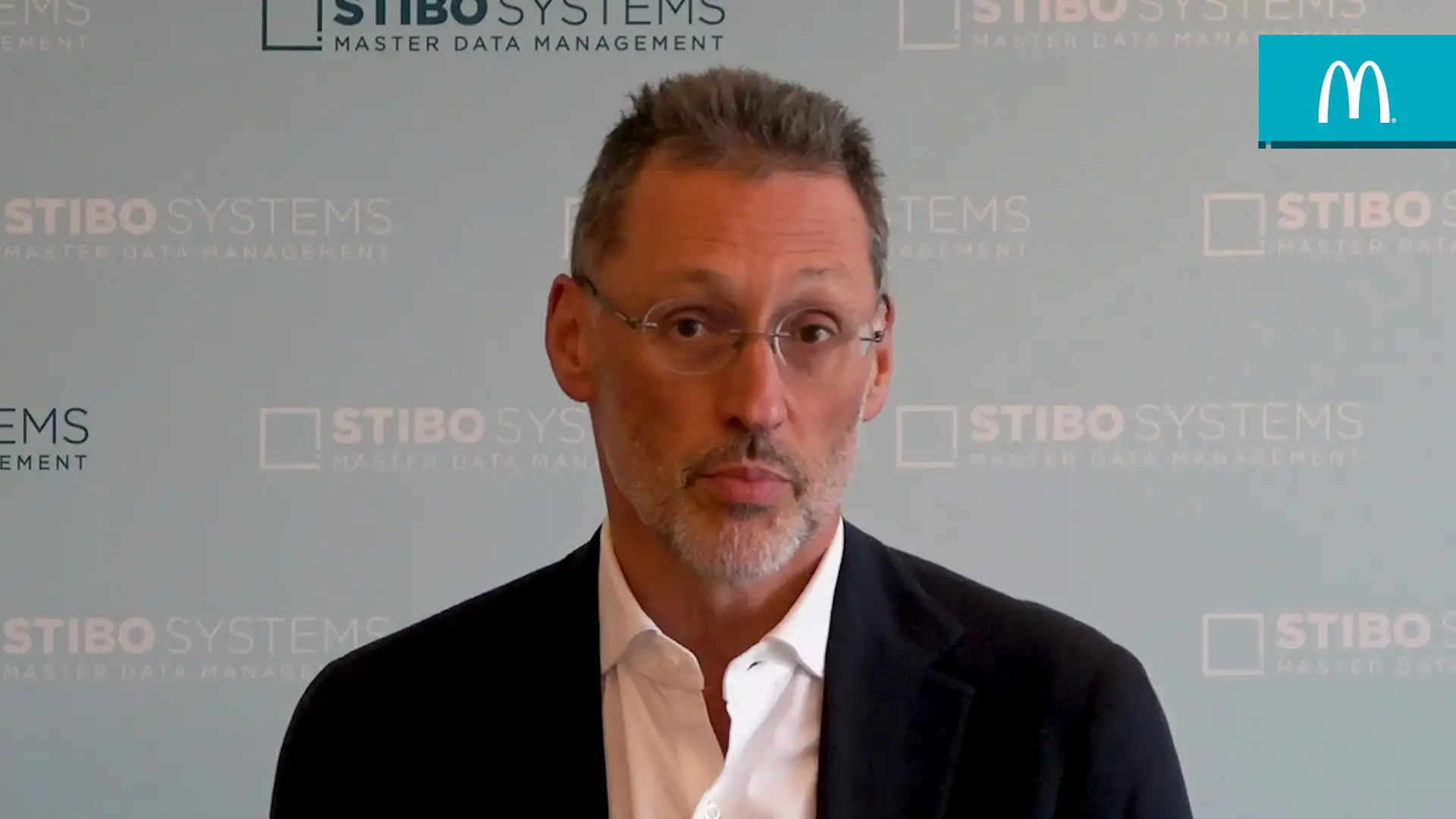Simplify your MDM vendor selection
Which MDM solution will drive your success? Access detailed vendor rankings and exclusive insights in the ISG Buyers Guide™ for Master Data Management.
Download the Buyers Guide
Solution
Quickly onboard, manage and govern supplier master data to gain a single, transparent view of supplier information across the supply chain.

Stibo Systems Supplier Data Cloud enables you to accelerate the activation of new supplier relationships, creating a single, trustworthy view of your suppliers and their products for greater savings and efficiencies.
It supports procurement teams by speeding up the onboarding of supplier and product data, mitigating risk management challenges, increasing product assortments and supporting supply chain resilience.
Without a 360° view of your supplier ecosystem, it can be difficult and time-consuming to track spending and supplier performance. Discover how to centralize and proactively govern supplier and product data for greater data management cost savings, efficiency and customer confidence with Supplier Data Cloud.
Supplier Data Cloud reduces supplier onboarding and supplier qualification from weeks to days using a consistent, repeatable process for evaluating, approving and adding new suppliers, as well as automated workflows and standardized processes for merging supplier accounts.
The solution guides suppliers through data requirements for onboarding product catalogs, with data enrichment services and the ability to supplement data from data pools. It also simplifies supplier collaboration through task-based workflows that automatically notify suppliers and internal teams when action is needed, helping to create stronger business relationships.
Supplier Data Cloud centrally manages large collections of media assets, automatically locating and formatting assets for a specific channel using embedded digital asset management.

With a complete 360° view, the solution provides visibility into relationships between suppliers, parent companies, sub-suppliers and subsidiaries enabling better pricing and payment term negotiation.
Supplier Data Cloud leverages automation, matching and business rules to enforce data standards for completeness and format. It validates supplier information, enriches data using third-party data sources such as D&B and GBG Loqate, and identifies and removes duplicate, dormant or poorly performing accounts.
The solution enables you to build different supplier hierarchies based on commercial, geographical, territorial and financial needs, as well as organize supplier items in multiple hierarchies for different markets, using classification rules and flexible search capabilities.

Supplier Data Cloud enables suppliers to update their own master data, accelerating supplier approval, reducing supplier and vendor onboarding and qualification time and minimizing costs and resources dedicated to ongoing maintenance of supplier data.
The solution enables information and asset sharing in a controlled, governed environment with standardized, automated workflows and processes.

The solution’s built-in data governance capabilities enable you to consolidate, cleanse, deduplicate and synchronize supplier data and item information.
The solution enforces data policy management rules with automated processes to ensure data meets quality requirements and parameters for completeness, timeliness, validity, accuracy and consistency.

The solution centrally manages supplier contracts, certifications, accreditations and performance metrics. It includes automatic purging of end-of-life data, including removal of inactive suppliers and their associated products, to mitigate supply chain risks.
You can track compliance via self-assessment questionnaires and supplier audits with workflow-based tools and can centrally flag and block suppliers partially or wholly when out of compliance. Configurable, role-based dashboards provide real-time visibility into supplier performance and scorecards.

Which MDM solution will drive your success? Access detailed vendor rankings and exclusive insights in the ISG Buyers Guide™ for Master Data Management.
Download the Buyers Guide
Accelerate onboarding
Accelerate onboarding
Increase product assortments and grow ecommerce sales by onboarding new suppliers and products faster, while ensuring data compliance.
Increase visibility
Improve supply chain planning and track performance of suppliers and new product offerings, identifying alternate suppliers as needed.
Minimize risk
Ensure on-time deliveries and product quality while monitoring for supplier fraud, non-compliance and changes to prices, markets and taxes.
Unlock the power of supplier information through better data management.


Let's talk about how master data management can drive growth, efficiency and transformation in your business.